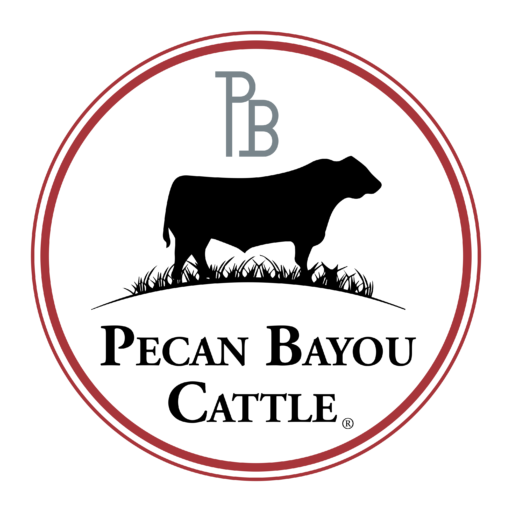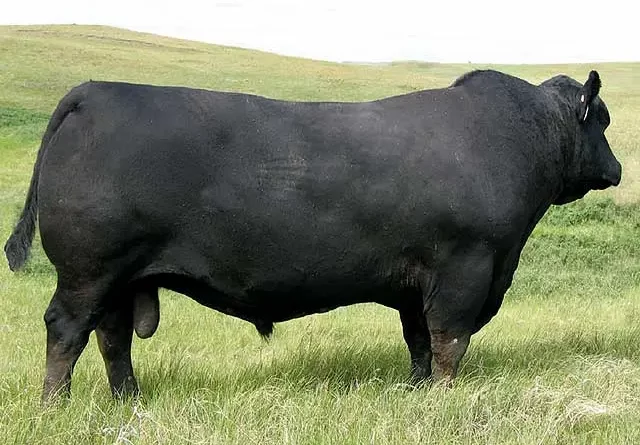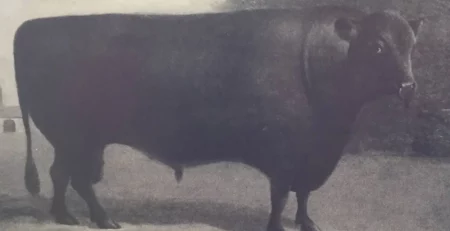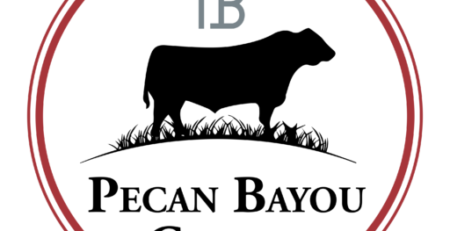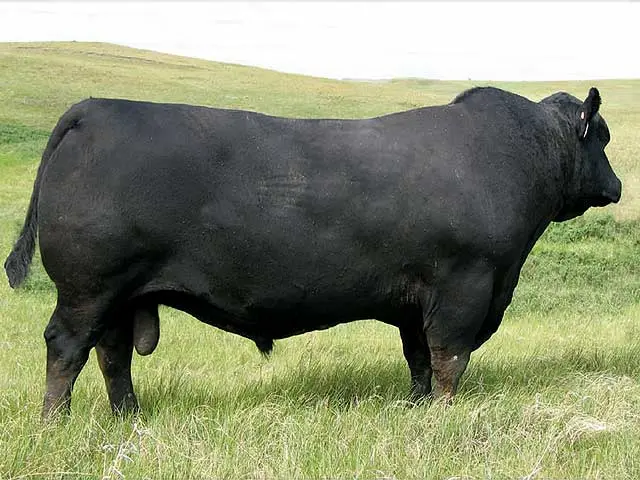
Registered Black Angus Bulls have an ability to mix well with other breeds of cattle. They have a high marbling rate, with a lower bone mass to muscle ratio than some of the other continental breeds, like Charolais. In the 1960s bulls were imported into the United States from Scotland and England into the herds in the United States to add thickness and breed character. Over the last fifty years, there have been some remarkable black angus bulls that have left their mark on the Angus breed.
Many breeders have developed bulls that gain weight in the feedlot at a high rate of average gain. While other breeders have focused on Angus that gain weight in the pasture while breeding cows, and developed cows that hold their body condition while on grassland instead of a feedlot bunker. There are certain bloodlines and those developed by linebreeding that have locked in the ability to flesh out on grass. Bulls that have the right hormonal balance, to slick off early, and put on muscle, while keeping a high breeding drive are very desirable.
The bulls that come from great looking, broody, fertile cows will leave behind replacement females that live for a long time and produce calves that are half the cow’s body weight in a period of six to eight months. Over time hard-doing thinner, plainer cows will tend to stay open and not breed back on time. As a result, cows that weigh between 1100 and 1300 pounds, that have easy-fleshing genetics, strong mothering abilities, and great teat structure are the best.
A great Angus performance bull will sire heavy weight steers and beautiful daughters that could be kept as replacement heifers. A bull’s genetics will be half your herd in a short time. Picking a bull from a good breeder is key. Knowing what the bull’s mother looks like and how she performs will help you make a good selection. The bull’s father’s mature size and overall looks is also important to consider when selecting an Angus bull.
In Australia, Brazil, and South Africa and in the Southern and Western parts of the United States it is desirable to have cattle that hold up in dryer, warm climates, and hold their body condition on lower input pastureland. This is why the performance Angus bloodlines from breeders who have developed these traits over the years are valuable.
